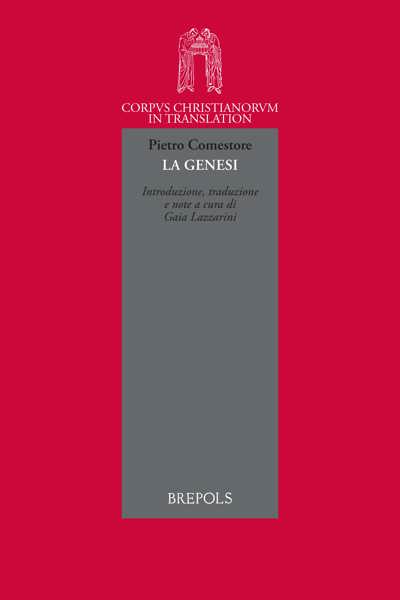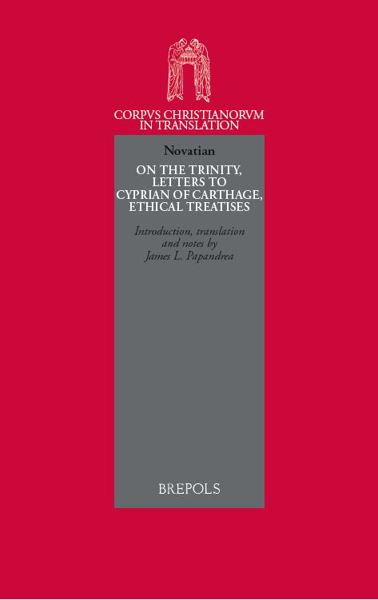
Anonymous
The Cambridge Gloss on the Apocalypse
Cambridge University Library Dd.X.16
Colin McAllister
- Pages: 167 p.
- Size:156 x 234 mm
- Illustrations:1 col.
- Language(s):English
- Publication Year:2020
- € 35,00 EXCL. VAT RETAIL PRICE
- ISBN: 978-2-503-58240-5
- Paperback
- Available
- € 35,00 EXCL. VAT RETAIL PRICE
- ISBN: 978-2-503-58241-2
- E-book
- Available
Colin McAllister's translation supports a scholarly apocalypse in the literal sense--an unveiling.
“If there are as many mysteries in the Apocalypse as there are words, then Professor Colin McAllister’s 2020 edition of this text for the Corpus Christianorum in Translation series from Brepols will certainly serve as an important tool for uncovering the enigmas, numbering at approximately 23,500 (McAllister’s tally of the words contained in the Cambridge Gloss).” (Emerson Richards-Hoppe, in The Medieval Review, 22.09.02)
“The translation is accompanied by concise textual notes, generally identifying sources but occasionally briefly commenting on an interpretation or citing a scholarly discussion. Bibliographies of primary and secondary sources, an illustration of a manuscript folio (revealing a clear, even beautiful, Carolingian miniscule hand), and four indices—of Scripture, non-scriptural sources, names, and subjects—complete the scholarly apparatus of this handsomely produced and excellent translation.” (Richard K. Emmerson, in Bryn Mawr Classical Review, 2021.04.32)
Colin McAllister is an Assistant Professor in the Department of Visual and Performing Arts at the University of Colorado, Colorado Springs. He is the editor of the Cambridge Companion to Apocalytic Literature, and the founder of Through a Glass Darkly: UCCS Annual Symposium on Apocalyptica, held each year at the Heller Center for Arts & Humanities.
The Glossa in Apocalypsin (Cambridge Gloss on the Apocalypse) is a recently-discovered anonymous Hiberno-Latin (that is, authored by an Irish cleric writing in Latin) commentary on the Apocalypse of John found in a tenth-century manuscript at Cambridge University Library. This gloss is written in a similar style to other Irish-authored exegetical texts of the same period. That is, the author proceeds verse by verse through the entire Apocalypse, citing short phrases or even single words of the biblical text, followed by brief explanations that serve to clarify meaning and are often moral or allegorical in nature, as well as offering alternative interpretations of a given passage. The text has a marked dependence on the hermeneutical method of the fourth-century Donatist Tyconius as laid out in his Liber Regularum (Book of Rules), and applied in his Exposition on the Apocalypse. The Cambridge Gloss promotes an ecclesiological and spiritual interpretation of the Apocalypse, muting speculation about an imminent endtime scenario. The gloss contains numerous references to heretics, emphasises the hierarchy and the privileged role of teachers within the church, and likely dates from the eighth century, the ‘Northumbrian Golden Age’, exemplified by the works of Bede the Venerable and Alcuin of York. This English translation (accompanied by numerous notes) is intended to give readers an insight into understanding the viewpoint that medieval exegetes held in explaining the Apocalypse of John.
The source text of this volume appeared in Corpus Christianorum, Series Latina as Glossa in Apocalypsin e codice Bibliothecae Vniuersitatis Cantabrigiensis Dd.X.16 (CC SL, 108G). References to the corresponding pages of the Corpus Christianorum edition are provided in the margins of this translation.





